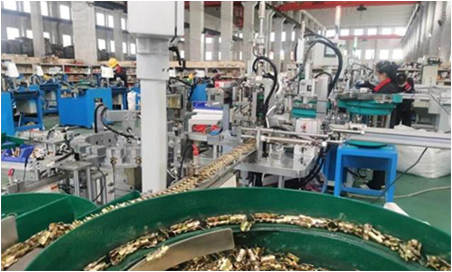सितम्बर . 22, 2024 16:10 Back to list
different types of bolt fasteners
Understanding Different Types of Bolt Fasteners
Bolt fasteners are essential components used in various applications, from construction and manufacturing to automotive engineering and household repairs. They provide securing and fastening solutions in numerous settings, ensuring that materials and components are held together with strength and reliability. In this article, we will explore different types of bolt fasteners, their applications, and key features that set them apart.
1. Hex Bolts
Hex bolts are among the most common types of bolts used in construction and engineering. Characterized by their hexagonal heads, they are designed to be used with a wrench. Hex bolts can be made from various materials, including steel, stainless steel, and alloy steel, making them suitable for diverse environments. They are often used in heavy machinery, structural applications, and vehicle assembly due to their high tensile strength.
2. Carriage Bolts
Carriage bolts have a unique dome-shaped head and a square neck that prevents the bolt from turning when tightened. These bolts are primarily used in wooden applications, such as in furniture and deck construction. The design allows for easy insertion into pre-drilled holes, making them user-friendly. Carriage bolts provide a flush finish, ensuring a smooth surface, which is aesthetically pleasing in visible applications.
3. Lag Bolts
Lag bolts, or lag screws, are heavy-duty fasteners that resemble large screws with a hexagonal head. They are primarily used for securing wooden structures and can provide a powerful grip in timber. The coarse threads allow for deep penetration into wood, making them ideal for projects like building decks, framing, and other structural applications requiring substantial load-bearing capability.
different types of bolt fasteners

4. Machine Bolts
Machine bolts are designed to fasten two or more parts together and are used primarily in machinery and automotive applications. They can be found in various head styles, including square, hex, and round. Machine bolts are made to precise dimensions and may come with different thread pitches, depending on the application requirements. These bolts are typically used with nuts to ensure secure fastening.
5. Eye Bolts
Eye bolts are specialized fasteners that feature a looped head, making them ideal for lifting or securing objects. They are commonly used in rigging, marine applications, and construction to connect chains, cables, or ropes. Eye bolts come in different grades and materials, such as stainless steel and galvanized steel, to withstand varying environmental conditions and load capacities.
6. Structural Bolts
Structural bolts are specifically designed for use in steel construction and are critical for connecting steel beams and other structural elements. They are manufactured to withstand heavy loads and are often used in bridges, buildings, and industrial structures. Structural bolts must meet specific standards and certifications, ensuring safety and reliability in load-bearing applications.
In conclusion, understanding the different types of bolt fasteners is crucial for selecting the appropriate fastener for a specific application. Each type offers distinct advantages, making them suitable for various tasks. By choosing the right bolt fastener, individuals and professionals can ensure the integrity and strength of their projects, leading to safer and more durable constructions.
-
The Ubiquitous Reach of DIN934 in Application Realms
NewsMay.16,2025
-
Exploring Different Bolt Types
NewsMay.16,2025
-
Cracking the Code of Sleeve Anchor Mastery
NewsMay.16,2025
-
Clamp Design Principles,Types and Innovations
NewsMay.16,2025
-
Artistry Inspired by the Humble Anchor Bolt
NewsMay.16,2025
-
A Deep Dive into Screw Types
NewsMay.16,2025


